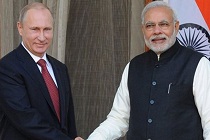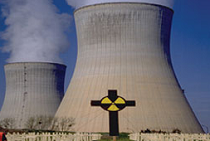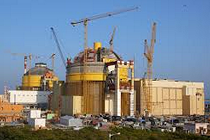A new energy mix for India
The India-Russia nuclear agreement envisages 12 nuclear reactors to be built in India. These will help India shift its energy mix towards nuclear power, which is cheaper than coal and less polluting

Senior Fellow, Energy, Investment and Connectivity
Energy: Trade, Markets, Geopolitics & Technology; Investments; Connectivity, Infrastructure, OBOR, BRI
 Courtesy: MEA/Government of India
Courtesy: MEA/Government of India
 Courtesy: nasa.gov
Courtesy: nasa.gov
 Courtesy: http://photodivision.gov.in/
Courtesy: http://photodivision.gov.in/


 Courtesy: wikimedia
Courtesy: wikimedia


 Courtesy: wikimedia
Courtesy: wikimedia
 Courtesy: Wikimedia.org
Courtesy: Wikimedia.org
